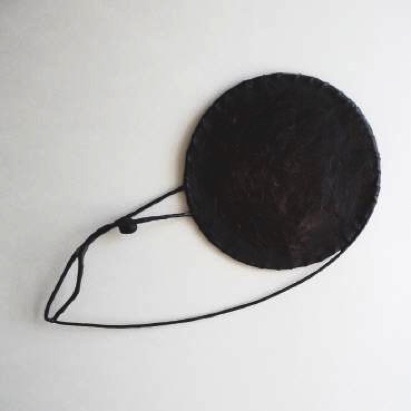Sisyfos (2015)
for accordion and harpsichord
commissioned by
Rønnebæksholm as part of a composer-in-residence project
Sisyfos er ifølge græsk mytologi søn af Aiolos - og muligvis far til Odysseus.
Under sit besøg i Hades ser Odysseus Sisyfos i færd med at trille en kæmpemæssigsten op ad en bakke. Lige før han når toppen, smutter stenen fra ham, og han må begynde sit arbejde forfra. Sådan går det iom og om igen til evig tid - det er den straf, han har fået, fordi han trodsede guderne, da det lykkedes ham at snyde sig tilbage til livet efter sin første død.
I vore dage bruges begrebet sisyfosarbejde derfor som udtryk for et opslidende arbejde, der er uden ende. Arbejdets forbandelse! Men måske giver myten også
anledning til overvejelser over dialektikken mellem proces og resultat.
Er det i grunden så vigtigt, om den forbandede sten nogensinde når toppen? Vil det gøre Sisyfos lykkelig?
Eller er det alt i alt mere meningsfuldt hele tiden at være på vej, i bevægelse?
Denne duo udforsker forholdet mellem det statiske og det dynamiske. I den forstand: et vaskeægte Sisyfos-arbejde...
According to Greek mythology, Sisyfos was son of Aiolos, God of the Winds, and possibly father of Ulysses. During Ulysses' visit to Hades he discovers Sisyfos occupied with pushing a huge stone to the top of a tall hill. Right before he reaches the top the stone slips away from him, and he must move back and start his work all over again. And again and again- eternally. That is the punishment he has been sentenced because he defied the Gods when he once succeeded in cheating his way back to life after his first death.
Now a days we use the term "Sisyphean task" to describe a never-ending, backbreaking quest. The curse of labor!
But maybe the myth could as well be seen as pointing out the dialectic relation between process and result: Is it really the meaning of life to reach the top? Will that make Sisyfos happy? Or is it, after all, more meaningful to be constantly on your way, to be in the move?
This duo for accordion and harpsichord explores the relation between static and dynamic. In that respect: a true Sisyphean task...
John Frandsen
DUO DIAGONAL
Anka Zlateva, harpsichord
Adam Ørvad, accordion
Download:
The piece is part of the
